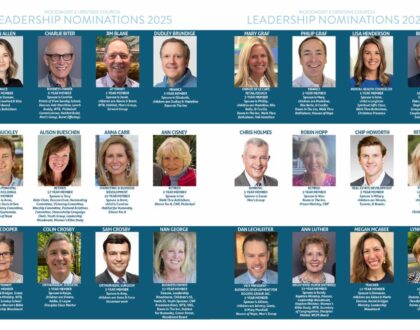Rethinking Happiness, Values, and Success

This fall, I am teaching an undergraduate course at Vanderbilt focusing on the notion of success and the American Dream, a concept defined in many different ways. We started the semester with some basic working hypotheses.
First, in the Declaration of Independence, the Founding Fathers say that there are certain inalienable rights from our Creator, including “life, liberty, and the pursuit of happiness.” But what is happiness and how do we pursue it?
Second, research has shown that the “birth lottery” plays a significant role in determining an individual’s starting point in life. We know this to be true. However, many people have broken generational cycles of poverty to go on and achieve great things. JD Vance who wrote Hillbilly Elegy comes to mind.
Third, success in life should not be solely defined by socioeconomic status, wealth, and career advancement. Factors such as marriage, family, faith, friendship, character, service, and integrity all matter in living a successful and meaningful life.
One of the great challenges for those in higher education today is to prepare well-rounded students for life beyond the academy, which should involve the formation of values, character, and resilience. Life is not easy or fair. It is full of disappointment, heartache, and set-backs. High GPA’s and test scores do not guarantee success or happiness in our society. Some people only gauge success in our culture by financial gain, upward mobility, and materialism. Workaholics are praised and justified. Money and status become the scoreboard, but I think this is a mistake. Life is so much more than that.
There is a shallowness and superficiality that permeates the soul of a person who is only obsessed with wealth and consumption. Chances are they spend a lot of time thinking about the opinions of others. New York Pastor Timothy Keller argues that money and success are two of the most common idols in our culture, often linked together. He says, “Money is the most common counterfeit god that there is. When it takes hold of your heart, it blinds you to what is happening, it controls you through your anxieties and lust, and it brings you to put it ahead of all other things.”
Also, remember the words of Jesus: “What does it profit you to gain the whole world, but forfeit your soul? What can you give in return for your soul?” Life is more than building a bank account and buying nice things. So how can we encourage young people to reach a healthier understanding of success and meaning?
Identifying healthier definitions of success are important. Ralph Waldo Emerson defined it this way: “To laugh often and much; to win the respect of intelligent people and the affection of children; to earn the appreciation of honest critics and endure the betrayal of false friends; to appreciate beauty, to find the best in others; to leave the world a bit better, whether by a healthy child, a garden patch, or a redeemed social condition; to know even one life has breathed easier because you have lived. This is to have succeeded.”
Harvard Professor Clayton Christiansen constantly wrestles with these questions in his classes. He is not simply interested in training future executives and millionaires but in developing citizens who take the formation of character and virtue seriously. Christiansen says, “Intimate, loving, and enduring relationships with our family and close friends will be among the sources of the deepest joy in our lives.” This is also one of the keys to finding inner peace. Real success in life comes when we learn to build and sustain relationships, develop emotional intelligence, and then going out of our way to make somebody else’s life better.
Recommended Posts

Healing, Growth, & Renewal Over Time
May 30, 2025

Values for Our Graduates
May 20, 2025

Leading in the Church
May 16, 2025

